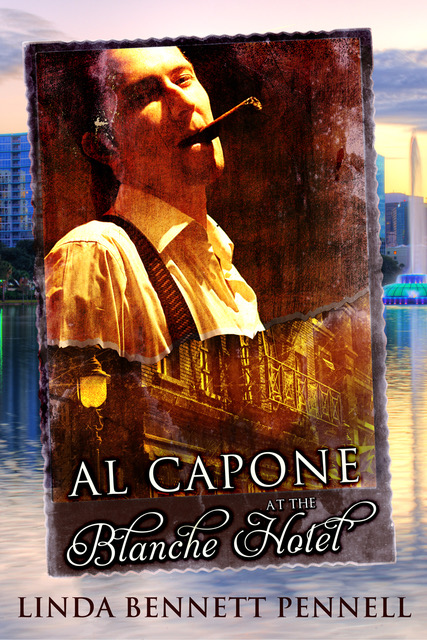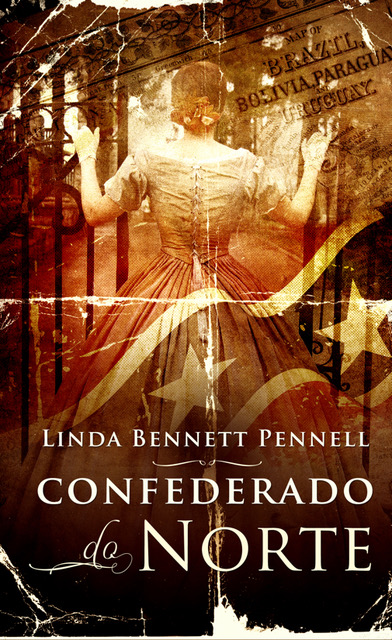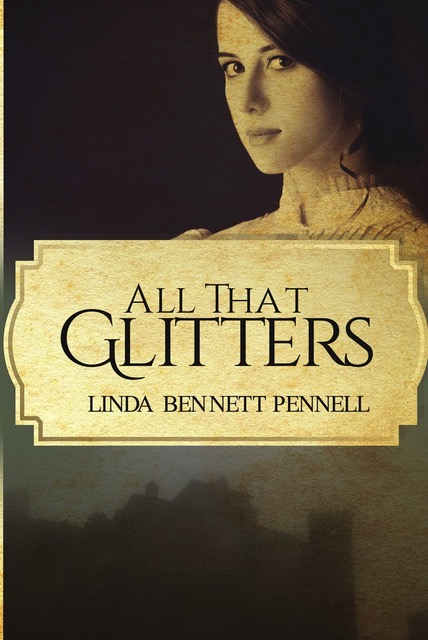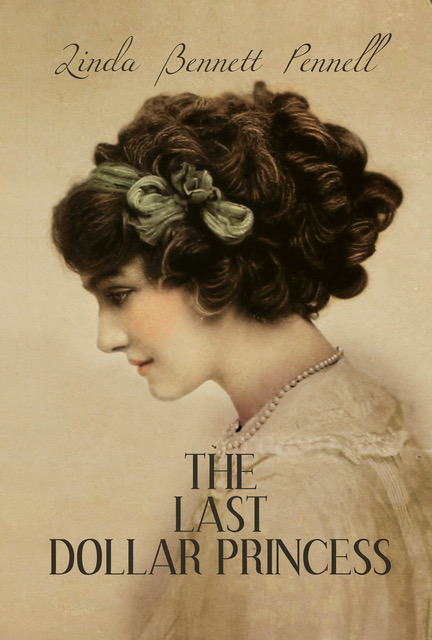
I always find it interesting and inspiring to talk to other authors, and today my interview is with the American author Linda Bennett Pennell, who has been an online acquaintance of mine for a number of years.
1. Good morning Linda Welcome to Authors’ Corner. You’ve been a successful novelist for many years now, tell us a bit about yourself.
I have been in love with the past for as long as I can remember. Anything with a history, whether shabby or majestic, recent or ancient, instantly draws me in. I suppose it comes from being part of a large extended family that spanned several generations. Long summer afternoons on my grandmother’s porch or winter evenings gathered around her fireplace were filled with stories both entertaining and poignant. Of course, being set in the American South, those stories were also peopled by some very interesting characters, some of whom have found their way into my work.
As for my venture in writing, it has allowed me to reinvent myself. We humans are truly multifaceted creatures, but we tend to sort and categorize each other into neat, easily understood packages that rarely reveal the whole person. Perhaps you, too, want to step out of the box in which you find yourself. I encourage you to look at the possibilities and imagine. Be filled with childlike wonder in your mental wanderings. Envision what might be, not simply what is. Let us never forget, all good fiction begins when someone says to herself or himself, “Let’s pretend.”
I reside in the Houston area with one sweet husband and one adorable, Lulu the Labradoodle who is quite certain she’s a little girl.

2. In your web page I see you refer to yourself as a true GRITS – a girl raised in the south. How has coming from the southern part of the United States influenced your writing?
Simply, the deep south is a land of storytellers. Whether one is looking to the famous like William Faulkner, Thomas Wolfe and Alice Walker, or to Granny, Uncle John, and Aunt Lillian, folks from the south generally know how to spin a good yarn. Storytelling is a Southern tradition just as much as grits, collards, black-eyed peas, and cornbread. My favourite childhood memories involve listening to my older relatives tell stories about the past and present. Some of the stories involved ancestors, others told of local characters and their unique personalities and behaviours. No matter the subject, the stories were told to entertain as much as they were to contribute to the conversation.
3. What is it about writing historical fiction that you enjoy most?
My B.A. is in US and British history. I have loved anything with a past as far back as I can remember. It seems to be in my DNA.

4. I see that some of your characters are real people – Al Capone for example. Does that present any problems when you insert them into a work of fiction? Are any of your other characters real people?
When I incorporate a historical figure in my work, I try to keep the character consistent with what is known about that person. I may take creative liberties in service of the plot, but the character development and arc will be compatible with the historical evidence. In Al Capone at the Blanche Hotel, Miami Days Havana Nights, and Confederado do Norte, there are absolutely real people presented either as amalgams or individual historical figures. My ancestors, family members, and people I have known all have a way of working their way into my fiction. They are not always given their real names nor do they always appear in the era in which they lived, but they are there all the same. A caveat to readers: be very careful what you say and do if you have a writer in the family!

4. Some years ago you asked me to contribute to your series of blogs called History Imagined. What was the inspiration for that?
In 2014, Romance Writers of America held its annual conference in San Antonio, a mere three hour drive from Houston. It was an opportunity not to be missed even though my work is women’s fiction rather than true romance. At a collaborative marketing workshop, I met an author with whom I clicked. We left San Antonio having promised to create a blog centred around historical fiction. We advertised for a third partner and History Imagined: For Readers, Writers, and Lovers of Historical Fiction was born. As one might imagine, keeping the blog going is pretty time consuming and my two blog partners ultimately dropped out. While I miss them, going it alone has opened opportunities for featuring other authors that did not exist before. I encourage authors of historical fiction to take a look at the New Release Wednesday and First Friday Guest Post features. https://historyimagined.wordpress.com/

5. In the present climate, an author has to spend as much time marketing their books as writing them. How do you feel about that?
I wish I could say that I just love having to market my own work, but in truth, I find it a burden. I was brought up to believe that self-promotion is tacky, so I start with a readymade emotional barrier to asking people to buy my books. In addition, I have no marketing background at all, so I lack the skills. That said, there are two marketing tools that I absolutely adore and take advantage of at every opportunity. I am fortunate to live in a large metropolitan area with lots of bookclubs. I am asked to speak to a variety of clubs throughout the year and it is one of my greatest pleasures. I also enjoy writing for other people’s blogs. After all, what’s not to love about talking and writing about one’s passion?
6. Which marketing tool have you found the most useful for your books?
I have found that blogging, whether my own or others, is helpful with getting one’s name out there. Participating in author groups and making friends, the majority of them virtual, is a huge help. We authors must help one another in today’s chaotic publishing environment.

7. Your latest novel has just been published. Can you tell us a little about it?
Set in the final gasp of the Gilded Age, The Last Dollar Princess follows an American heiress through the ballrooms of New York and coronation year London where she fights for independence and a life of her own choosing despite her family’s and society’s demands.
This is on the back cover:
It must be said. Scandal follows her family like a faithful hound. No matter how hard they kick it away, it comes slinking around to insinuate itself into their lives again. Although her family is obsessed with social position, one thing is certain. Heiress India Elisabeth Petra De Vries Ledbetter is an outlier among her kin. She is determined to set her own course, family expectations and society’s demands be damned.
Reared away from the social whirl of Gilded Age New York, India would prefer a life of philanthropy in her native Appalachia, but Mother and Grandmama have far grander plans. They believe Mrs. Astor’s old 400 are ready to overlook the past and that an advantageous marriage will cement their place in society once more. In fact, they have already selected the prospective bridegroom. The only problem? No one consulted India.
With captivating insights into the human spirit and heart, The Last Dollar Princess leads us on a riveting quest for self-determination through the most elegant and glamorous settings of the early 20th century. Perfect for fans of Marie Benedict, Daisy Goodwin, and Julian Fellows, this sweeping work of historical fiction will stay with readers long after the last page is turned.
8. What are you working on now? Do you have another novel in mind?
My work-in-progress is a sequel to The Last Dollar Princess. Entitled The American Countess, India’s story continues through the end of World War I. After that, I feel the Roaring Twenties calling.
Thank you so much for talking to us, Linda and good luck with your new novel.
Linda’s books are available from most distributors including Amazon. You can find out more about Linda on her website http://www.lindapennell.com/
Thank you, Joan, for hosting me! I love that you give back to the writing community!!

2 Responses
Thank you so much for hosting me, Joan! I would be delighted to return the favor in the future. All you need to do is ask.
You’re welcome.